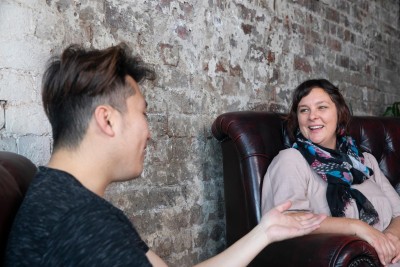responding to suicide and critical incidents
Local communities can be rocked by traumatic and critical events. The effects can go beyond those immediately involved and can have long-lasting effects on the mental health and wellbeing of young people and those around them. Although individuals may experience traumatic events in different ways, with timely and appropriate support, the risk of long-term impacts can be significantly reduced.
Programs
For the best long-term outcome for a whole community, it is important to consider the immediate, short-term and longer-term response following a major incident. headspace can assist with practical steps throughout these stages.
What we do:
- Provide organisations with tailored advice and consultation
- Provide direct response and recovery support
- Connect individuals and organisations with services and support
Contact us for immediate assistance
If your school is currently responding to, or recovering from, a suicide or attempted suicide, please contact your Be You state or territory manager.
- NSW/ACT: 0475 838 049
- NT: 0484 269 957
- QLD: 0455 079 803
- SA: 0448 381 280
- VIC / TAS: 0458 559 736
- WA: 0477 769 352

School and university programs
Be You - mental health in education initiative delivered by Beyond Blue in collaboration with Early Childhood Australia and headspace. Be You provides Australian educators with knowledge, tools, and resources to create positive, inclusive, and responsive learning communities.
University Support Program – Training and education on mental health and wellbeing to Australian universities, including consultation and review of university suicide prevention and postvention policies and frameworks. Further training and education is available via the responding to suicide toolkit.
Further Information
Alternatively, if you are working in local organisations/councils/schools looking for support on how to manage your response. Get into contact with us via email: schools&communities@headspace.org.au.

Support through headspace centres
headspace provides timely capability and support to communities so they can respond, recover from and manage critical incidents. We have centres located throughout Australia staffed with people who are trained and ready to help.
Resources
headspace support for students, teachers, and schools following large scale incidents - PDF
Be You resources
Suicide response
Be You suicide response - A coordinated and informed response can help schools address student and staff needs following a suicide, providing support, aiding recovery and reducing the risk of more suicides.
Fact sheets
The toolkit is supported by Fact Sheets providing guidance on some of the key activities that occur after a suicide.
For Emergency Response Team members, leaders and wellbeing staff:
- Managing language and consent about using the word 'suicide'
- Speaking with the bereaved family after a suicide
- Supporting young people after a suicide
- Funerals and memorials
- Media and social media
- Boarding schools: What to do after a suicide
For educators and support staff:
Information educators can provide to families and the broader community:
If there are Aboriginal and Torres Strait Islander students or staff members at your school, these Fact Sheets can support your learning community with a culturally respectful response to suicide.
For Emergency Response Team members, leaders and wellbeing staff:
- Remembering a young person: Memorials and important events in Aboriginal and Torres Strait Islander communities
- Suicide contagion for Aboriginal and Torres Strait Islander young people
For all educators and support staff:
- Grief: How Aboriginal and Torres Strait Islander young people might respond to suicide
- Self-care for school staff working with Aboriginal and Torres Strait Islander young people in remote areas
Information educators can provide to families and the broader community:
